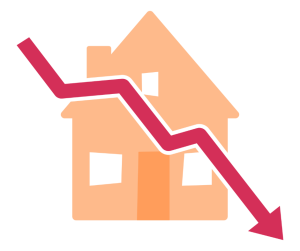Understanding Risk and Risk Profile

What is Investment Risk?
Most people know that all forms of investments come with some degree of risk. But what exactly is risk?
In simple terms, risk is the possibility that what you end up gaining from an investment could be different from what you thought you would get. It also means you might lose some or even all of the money you initially put in.
Here are three things you should know about investment risk:
1. Higher returns come with higher risk.
If you want to make more money from your investments, you'll likely need to accept that there's a chance you could lose some of it.
So, if you want a safe bet and do not mind getting back a little more than your original investment, typical safe investments are bonds issued by the Singapore Government, such as Treasury bills or T-Bills for short.
In Singapore, the yield on a one-year T-bill is about 3.5% (data retrieved from https://www.mas.gov.sg/bonds-and-bills/treasury-bills-statistics on 5 April 2024).
Companies also borrow money and could issue bonds, too. If a company offers a one-year bond at a rate of 5%, investors will assess whether the extra 1.5%, when compared to the Government’s T-bill rate of 3.5%, is worth the risk. Remember, companies may fail, so you will have to take into consideration the company’s track record and overall financial health.
2. Higher risk doesn’t ALWAYS mean higher returns.
Just because you are willing to take on bigger risks doesn't guarantee you will make more money. Sometimes, you might end up losing instead.
The simple truth is, when it comes to investing, there are no free lunches. If you find a product promising a very high return compared to the risk-free rate, you should be suspicious and sceptical.
3. Stay realistic about returns from any investment.
Don't set your expectations too high for any investment. It's important to be realistic about how much money you might actually make.
Keep in mind the saying: "If it sounds too good to be true, it probably is." This is a warning to be cautious of big promises with little risk or effort.
Before you invest your hard-earned money, always remember to “ask, check, and confirm”. This checklist ensures that you're absolutely sure about every aspect of the investment, including the person or institution you're dealing with.
“Ask’’ – Ask how the returns will be generated as well as where your money is going.
“Check’’ – Check the credentials of the individual or entity promoting the investment product.
You can refer to the Monetary Authority of Singapore’s (MAS’s) Financial Institutions Directory (link here: https://eservices.mas.gov.sg/fid) to check on the license held by the issuing entity.
Also, check MAS’s Register of Representatives (link here: https://eservices.mas.gov.sg/rr) to see if the person you are dealing with is authorised to represent the issuing entity and if they meet MAS’s “fit and proper’’ criteria.
Remember, just because a company or person is listed on the MAS directory doesn’t guarantee that you will make money. It simply means there’s a lower risk of being cheated.
“Confirm” – Confirm and verify all the details and ensure everything is in order before proceeding with the investment. You may need to revisit, ask further questions, and double-check. Seek clarifications on any terms or conditions you're unsure about until you are fully satisfied that you understand everything on the table, including the risks involved.

A look back in history
In 2008, about 10,000 retail investors in Singapore lost over $500 million in investments linked to Lehman Brothers Minibonds due to the collapse of the American investment bank.
Local news media began reporting about individuals who claimed they were misled into buying these investment products and made complaints on the way these risky products were marketed and sold as safe investments.
Many were not proficient in English or had little financial knowledge. To compound the situation, the financial institutions that distributed these products included well-known institutions such as DBS Bank, Maybank, Hong Leong Finance, and OCBC Securities, among others.
While the incident is unfortunate, it serves as a stark reminder that we are ultimately responsible for our own investment decisions and should fully understand the investments we choose to make.
(Reference NLB “Lehman Brothers Minibond Saga”, https://www.nlb.gov.sg/main/article-detail?cmsuuid=2d8ea399-e042-429a-84e9-eab8cd256d4d)

Understand your risk profile.
It is essential for every investor to know and understand their risk profile. You may think of it as just how willing someone is to take risks, but the capacity to take risks is equally, if not more, important.
Your risk tolerance is affected by your personality, past experiences, need for stability, and behavioural biases. Your risk capacity is about your actual financial situation and obligations. For example, a person might be okay with taking big risks, but if they don't have the financial capacity for it, they shouldn't invest too much in risky investments.
You can use CPF’s Risk Tolerance Questionnaire, available on its website, to understand your own tolerance for risk (link here: https://www.cpf.gov.sg/member/faq/growing-your-savings/cpf-investment-schemes/how-much-risk-am-i-willing-to-take-for-my-investments-).
Stay grounded. Invest wisely.
Investing wisely requires understanding and managing investment risks. Higher returns often come with higher risks, but this doesn't always guarantee success. It's crucial to maintain realistic expectations and verify investment opportunities thoroughly. The unfortunate events of the Lehman Brothers Minibonds in 2008 underscore the importance of due diligence and personal responsibility in investment decisions.
Remember, knowing your risk profile and choosing investments accordingly can help safeguard your financial future and prevent unnecessary anguish.
| If you enjoy our articles, please follow and like our Facebook page. We post new content every week that you may find useful and engaging. |
Contributed by Credit Counselling Singapore
Published 5 April 2024.
